Zero-waste water purification system looks to unsettle bottled water industry
7 Nov 2022The bottled water industry is facing stiff competition from a raft of startups looking to reduce water and plastic waste as demanded by today’s sustainable-conscious consumer.
The new kid on the block is Sküma Water, a London-based firm that makes a water filtration system which reinfuses tap water with electrolytes that are fully customisable.
Sküma Water has just come off the back of a successful pre-seed funding round, which raised €345K (£300K) – enough to extend its manufacturing capacity and build its D2C sales pipeline.
“The functional drink industry is growing rapidly; however, few at-home water purification systems are as easy to use as what Sküma Water has developed, while generating zero waste,” said Sarah Barber, CEO at Jenson Funding Partners, the venture capital firm that led the early-stage funding.
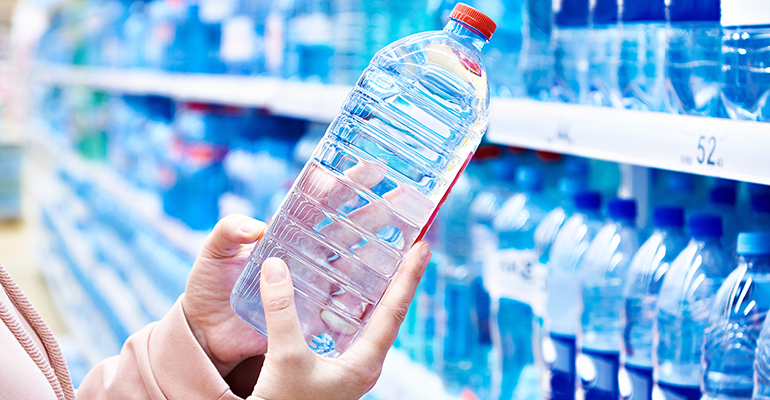
“What makes Sküma Water special is not just that it’s easy to install, but sustainability is just as important as its functionality.”
Jenson pointed to the system’s reverse osmosis (RO) membrane, which removes 99% of all contaminants from tap water without generating wastewater – a common issue faced by RO water purification filters.
It added that a key market for Sküma was consumers searching for a more sustainable long-term alternative to bottled water and functional beverages.
“As an angel investor, it’s important for me to invest in companies that I believe are making a difference in the way that we live our daily lives,” said William Ripley, angel investor and board advisor at Sküma Water.
“Sküma Water benefits not just us, but the planet too. It’s clear that this goal is central to what [founders] Alexandre, Georges, and Tony have created, and this is what drew me in as an investor.”
Water products diversifying to meet demand
Water’s health benefits have never been questioned by consumers, who have been more concerned by the waste generated as the bottled water industry has grown in popularity.
Recent figures point to a $510bn (€522bn) industry by 2030, driven by factors such as an increase in urban population, higher disposable income, and higher standards of living, according to analysis by Market Research Future.
The strong link between clean drinking water and overall health has led to the emergence of nutrient-fortified water, particularly among business travellers, professionals in the workforce.
Products with labels like "alkaline", "electrolyte-rich", "fortified", "caffeinated water", and "fortified with additional hydrogen or oxygen" have gained increasing market share over the past few years.
However, the same analysis points to the inappropriate disposal of plastic water bottles as a factor that may impede market expansion.
Other market restraints include the high energy requirements for water extraction, processing, and bottling, increasing pressure on bottled water manufacturers to streamline their practices.
“The environmental damage brought on by improper plastic bottle disposal adds another layer to this issue and will likely limit the future expansion of the bottled water industry in the United States,” said Market Research Future.
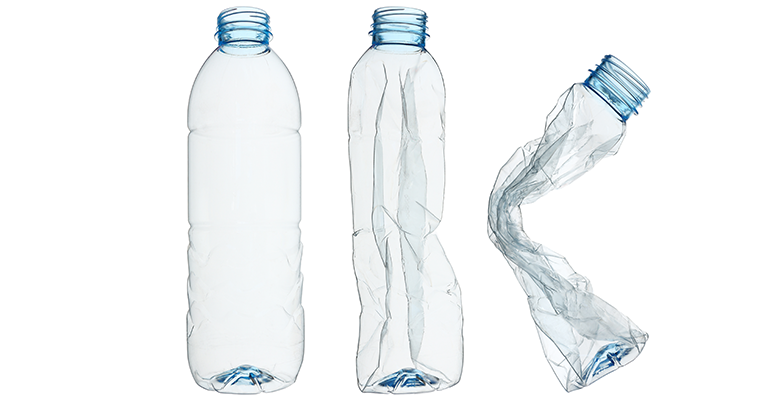 © AdobeStock/eNJoy Istyle
© AdobeStock/eNJoy Istyle
It is not only startups like Sküma Water that are looking to shift away from plastic bottles. In November 2021, UK-based company Vivid Water presented its line-up of flavoured and plain pure spring waters that use a cardboard 500 ml carton.
Commenting on the switch, the company highlighted cardboard’s smaller environmental footprint compared with the plastic and aluminium it previously used.
Meanwhile, Aqua British plant-based bottles are made from raw bio-sourced materials. After use, the bottle, cap, and label can be placed on the compost heap, where they will break down naturally.
Aquapax water cartons are made from 75% plant-based material and Forest Stewardship Council (FSC) certified paper. The carton includes a cap made from renewable sugar cane.
Bottled water not as environmentally damaging?
Data from the Beverage Marketing Corporation (BMC) points to an increased consumer demand for bottled water as a healthy alternative to other packaged drinks.
Jill Culora, vice-president of communications at the International Bottled Water Association (IBWA), said: “People are choosing to drink fewer calories, and making that healthy choice of bottled water has the added benefit of helping the environment.
“Not only are bottled water containers 100% recyclable (including the cap) but they also use much less plastic than soda and other packaged beverages.”
According to the industry group, soda containers, on average, use 188% more PET plastic than bottled water containers (23.9 g vs. 8.3 g for 16.9-ounce containers) due to their carbonation and/or bottling processes.
Even with continuing growth and increased consumption, bottled water still has the smallest water and energy use footprint of any packaged beverage.
On average, only 1.39 litres of water (including the one litre of water consumed) and 0.21 megajoules of energy are used to produce one litre of finished bottled water.
Related news
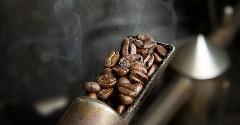
Swedish food agency: One in 10 coffee brands contain excess acrylamide
7 Dec 2022
New findings from the Swedish Food Agency have revealed three of 29 coffee products sampled contained acrylamide above limits, reinforcing the link between levels and degree of roasting.
Read more
Editor’s choice: Our roundup of the latest women’s health products around the world
2 Dec 2022
From botanicals to combat menopause symptoms to a hydration powder for mothers-to-be, here is our roundup of the most innovative new product launches within women’s health.
Read more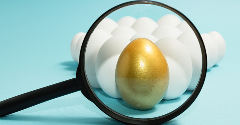
The prize no brand wants to win: 2022’s most misleading products
28 Nov 2022
Food industry watchdog Foodwatch is asking consumers to vote for 2022’s most misleading product. A high-sugar vitamin water and “artisan” salad made with artificial additives are among the nominees.
Read more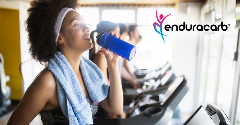
enduracarb®: A science-backed trehalose ingredient for athletic endurance
24 Nov 2022
enduracarb® is a science-backed, slow-acting carbohydrate that can power athletes’ performance. Produced using a high-purity production process, it is suitable for a wide variety of applications.
Read more
China bans celebrity endorsement of health and formula foods
22 Nov 2022
China is to ban celebrity endorsement or advertising of certain products, completely banning high profile figures with “lapsed morals” as the country attempts to drive society towards “core socialist values”.
Read more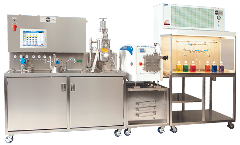
MicroThermics’ Formulators Guide to Process Selection for Plant-Based Beverages
15 Nov 2022
Plant-based beverages & products are mainstream! Come to FIE booth 4D122 & read our whitepaper to see how processing in the lab at commercial HTST & UHT conditions gets you to market faster for less!
Read more
PlantGuard™: Natural preservation solutions for clean-label products
11 Nov 2022
To respond to consumer demand for naturality and clean labels, Prinova has developed PlantGuard™, a 100% plant-based range which preserves the flavour, colour, and freshness of foods and beverages.
Read more
Give your fermented protein drinks a clear head start
10 Nov 2022
Fermented protein beverages are rising in popularity as more consumers make efforts to strengthen their health and wellbeing. Made for the ready-to-drink segment, products such as kombucha and drinking yoghurt are gaining traction as healthier alternat...
Read more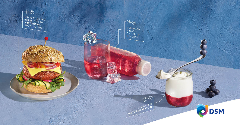
Enjoy it all: DSM talks taste, texture and health in the run up to FiE 2022
10 Nov 2022
Enhancing plant-based applications in taste, texture and health, addressing trending health priorities and introducing efficiency improving technologies – don’t miss the chance to meet DSM at FiE.
Read more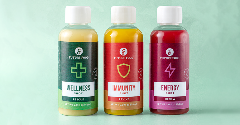
Superfood shots: Nigerian startup creates ginger-based drinks to boost health
2 Nov 2022
Nigerian startup, Futurefood Tech makes ginger-based shots to boost health and wellbeing using all natural ingredients, herbs and spices such as black pepper, beetroot, and cayenne pepper that give a nutritional boost to the typically starch-heavy Nige...
Read more